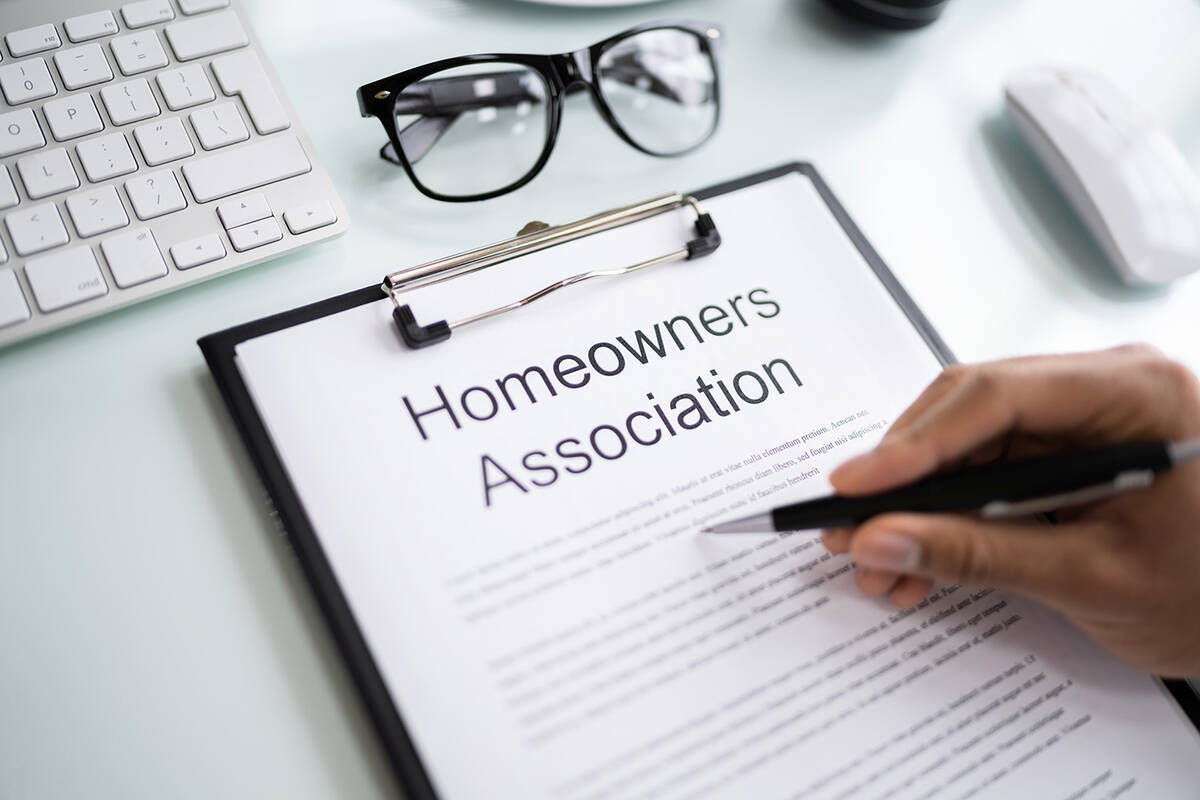A new anti-money laundering law will affect HOAs
NOTE: This article by Las Vegas attorney Greg P. Kerr was first published in the Community Associations Institute Nevada Chapter newsletter. We received permission to reprint it here. It is important to our homeowners associations. This is the first part of a three-part series.
The Anti-Money Laundering/Corporate Transparency Act was passed by Congress on a bipartisan basis in 2021. The goal of the Act is to empower the federal government to gather financial information about corporations to create more corporate transparency and better discover and combat money laundering, terrorist funding and other financial crimes.
The Act seeks to accomplish these ends by requiring reporting companies to disclose what is referred to as beneficial ownership information. That information will be reported to the United States Department of the Treasury’s Financial Crimes Enforcement Network. The effective date of the FINCEN reporting rule was Jan. 1, 2024, which means that it is now in effect. While the purpose of the Act is certainly well-intentioned, its breadth creates harsh, unintended consequences for the vast majority of the nation’s homeowners associations. To put it plainly, the vast majority of Nevada common-interest communities are subject to the Act and its reporting requirements.
Reporting Companies
Subject to enumerated exemptions under the Act, a “reporting company” is defined as a corporation, a limited liability company, or other entity that is: (1) formed by filing documents with a secretary of state or similar office of a state or Indian tribe; or (2) formed under the law of a foreign country and registered to do business in the United States. With the vast majority, if not all, of homeowners associations in Nevada being created by the filing of articles of incorporation or similar constituting document, Nevada homeowners associations are considered “reporting companies” under the Act. In fact, in a recent email from U.S. Sen. Catherine Cortez Masto, she confirmed that most community associations will be subject to the Act.
That said, the Act identifies 23 categories of entities that are otherwise exempt from the reporting requirements. Of those, there is an exemption for tax-exempt entities that are organized as a 501(c) entity under the Internal Revenue Service tax code. A 501(c) corporation is a nonprofit corporation that is organized for some charitable purpose or otherwise serves the public interest (e.g., educational, artistic, religious, advocacy). However, very few homeowners associations are organized as 501(c) corporations and attempting to organize as a 501(c) corporation for purposes of avoiding the Act is not a viable solution. As such, the vast majority of Nevada homeowners associations are “reporting companies” and will have to comply with the Act.
There is also an exception for “large operating companies” as defined in FINCEN rule. That large operating company exemption only applies if the large operating company meets the following criteria: (i) federal tax returns demonstrate more that $5 million in gross receipts or sales; (ii) has an operating presence at a physical office in the United States; and (iii) employs more than 20 full-time employees within the United States. It is highly unlikely that any Nevada incorporated homeowners association employs more than 20 full-time employees and, as such, very few, if any, Nevada homeowners associations will qualify for the large operating company exception.
Reporting Beneficial Ownership Information
Under the Act, reporting companies must report and identify the company’s “beneficial owners” — any individual who directly or indirectly: (1) exercises substantial control over the reporting company; or (2) owns or controls at least 25 of the ownership interests of the reporting company. The final rule as adopted by FINCEN at 31 C.F.R §1010.380(d) defines and further explains who qualifies as “beneficial owners” of a reporting company. There may be one or there may be many “beneficial owners” who need to be identified and disclosed for any given reporting company.
Substantial Control
According to 31 C.F.R §1010.380(d) (1)(i), “substantial control” is defined as:
■ Serves as a senior officer of the reporting company.
■ Has authority over the appointment or removal of any senior officer or a majority of the board of directors (or similar body).
■ Directs, determines or has substantial influence over important decisions made by the reporting company, including decisions regarding:
(1) The nature, scope and attributes of the business of the reporting company, including the sale, lease, mortgage or other transfer of any principal assets of the reporting company.
(2) The reorganization, dissolution, or merger of the reporting company.
(3) Major expenditures or investments, issuances of any equity, incurrence of any significant debt, or approval of the operating budget of the reporting company.
(4) The selection or termination of business lines or ventures, or geographic focus, of the reporting company.
(5) Compensation schemes and incentive programs for senior officers.
(6) The entry into or termination, or the fulfillment or non-fulfillment, of significant contracts.
(7) Amendments of any substantial governance documents of the reporting company, including the articles of incorporation or similar formation documents, bylaws and significant policies or procedures.
■ Has any other form of substantial control over the reporting company.
Also, direct or indirect exercise of that substantial control by an individual includes, but is not limited to, the following: (i) Board representation; and (ii) ownership or control of a majority of the voting power or voting rights of the reporting company.
Ownership Interests (consisting of at least 25 percent)
The term “ownership interest” includes, but is not limited to: (i) any equity, stock or similar instrument; preorganization certificate or subscription; or transferable share of, or voting trust certificate or certificate of deposit for, an equity security, interest in a joint venture, or certificate of interest in a business trust; in each such case, without regard to whether any such instrument is transferable, is classified as stock or anything similar, or confers voting power or voting rights; and (ii) any other instrument, contract, arrangement, understanding, relationship, or mechanism used to establish ownership.
Based on the above, for homeowners associations, the beneficial ownership interests rest with the board of directors. As the directors substantially (if not entirely) control the affairs of the homeowners association, it is that control that will trigger the legal responsibility to report to FINCEN. Also, officers of homeowners associations may have to report their identity, even if they are not directors. There can be scenarios where an officer is appointed by the board of directors but is not a board member him/herself (e.g., declarant-appointed officers who do not serve on the board of directors). Those officers are also beneficial owners and must report. At a minimum, all board members will have to report to FINCEN as beneficial owners.
Also, attorneys for homeowners associations may have to report as beneficial owners if they are deemed to be “company applicants.”Pursuant to 31 C.F.R. §1010.380(e), the individual who directly files and the individual who is primarily responsible for directing and controlling that filing (if more than one person is involved) the document that creates the corporate association entity must also file a BOI (beneficial ownership information) report. So, for association attorneys that signed, filed or directed another person (e.g., paralegal) to file articles of incorporation for an association, that attorney and the other person must also file BOI reports.
Barbara Holland, CPM, is an author, educator and expert witness on real estate issues pertaining to management and brokerage. Questions may be sent to holland744o@gmail.com.
















